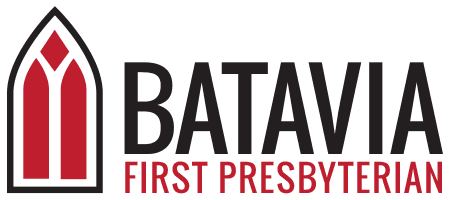Scripture for Sunday: Matthew 5:21-26
21 “You have heard that it was said to those of ancient times, ‘You shall not murder’; and ‘whoever murders shall be liable to judgment.’ 22 But I say to you that if you are angry with a brother or sister, you will be liable to judgment; and if you insult a brother or sister, you will be liable to the council; and if you say, ‘You fool,’ you will be liable to the hell of fire. 23 So when you are offering your gift at the altar, if you remember that your brother or sister has something against you, 24 leave your gift there before the altar and go; first be reconciled to your brother or sister, and then come and offer your gift. 25 Come to terms quickly with your accuser while you are on the way to court with him, or your accuser may hand you over to the judge, and the judge to the guard, and you will be thrown into prison. 26 Truly I tell you, you will never get out until you have paid the last penny.
Notes on the Text:
Matthew is usually listed as the first Gospel in the New Testament, but according to scholarship we know that it was written about fifty years after the death and resurrection of Jesus. The author is unknown to us but we know from the Gospel’s content and emphasis that Matthew was most likely a Jew, an Israelite who was steeped in the Law, the prophets and the traditions of his people. This Gospel was written after the destruction of the temple in Jerusalem in the year 70 CE which would mean that many of the Jews were trying to make sense of their faith and how this terrible national tragedy could happen. It was important to the Jews to reclaim their faith in a new way that would show the new ways God was continuing to be their faithful covenant partner and provider. That is why the way this Gospel presents Jesus emphasizes the importance of Jesus’ fulfillment of the teachings and prophecies of the Jewish people. This is really essential to remember as we study the passage for this week. For centuries such passages were used to justify anti-Semitism and a sense of Christian moral superiority over the Jews. We know how dangerous that way of thinking is, especially in light of the massacre in Pittsburgh last week. This passage was (and sometimes still is) often misused to justify negative attitudes toward the Jews. What Matthew presented was that Jesus was bringing the renewal of Israel and its faith without the focus on the Temple in Jerusalem. We need to remember that in this passage Jesus did not negate the importance of the Law given to the people of God in Exodus and Deuteronomy in what became known as the Torah. In fact, Jesus affirmed these laws by getting to the heart of what they were teaching.
In this context we see that Jesus was trying to get to the roots of anger and holding grudges. In this text, we hear Jesus’ challenge to his listeners to repent and seek reconciliation when they cause hurt. He elevated repentance and seeking forgiveness over the giving on an offering at the altar. The scene from The Godfather always comes to my mind when I think of this passage when we see Michael Corleone standing as a godfather and witnessing the baptism of his nephew while the execution he ordered of several men was taking place. It is a perfect example of empty piety. One could do all the religious duties, pray, attend worship, and give a lot of money, but if their heart is not transformed to seek and give forgiveness, his or her faith is truly a façade.
Jesus recognized the importance of asking for forgiveness as a path to deeper prayer and connection with God. Jesus knew that violence does not begin with murder. It begins with our negative and angry thoughts about others. In the Greek, the original language of the New Testament, the word Jesus uses for anger is orgizomenos. It is a present participle which means it is an action that is continuing to take place. Jesus is not denouncing anger in general. He is talking about a specific kind of anger, the anger that is a continual state of being. He is talking about holding grudges and stewing in our angry feelings. Often times this scripture is misused to say that Jesus taught that we should never be angry. This kind of interpretation misses the point that Jesus was trying to make. Anger is part of life and could lead us to do good in the world. However, unresolved anger can lead us into violent thoughts, words and even actions. So Jesus invites the listeners to be proactive about seeking reconciliation. Even as one is doing their religious duty of bringing their offerings to God, one has to leave that duty and get their affairs in order before being truly able to pray and to be present to God. An open heart to God comes from our ability to resolve or release our conflicts.
It is important to note that the couple of references which Jesus uses for hell in verses 22 and 29 were not references to a spiritual place of eternal damnation as many would assume. This kind of understanding came later. These references were to a specific place outside of the City of Jerusalem. The Greek word for hell is Gehenna which is a geographic place that was called “The Valley of Hinnom.” This was the trash dump for the city of Jerusalem where fire burned all night and day to consume trash. Also, in earlier times the Valley of Hinnom was a place of worship of other nations. Hundreds of years before Jesus, and a long time before it was a trash dump, it was the cultic center for worshipping the god Molech. People would travel from near and far to come and worship Molech, and make sacrifices to him. And the main sacrifice that was given to this god was children. The Valley of Hinnom was a place where bad things happened whether it was garbage burning or the sacrifice of children. This helps us understand that Jesus was using everyday images to help people connect their negative thoughts with the darkness and evil of Gehenna/The Valley of Hinnom.
Jesus challenged the people to greater faithfulness to the Law. He invited people to look deeper than the surface of their actions because that is where the transformation needs to happen the most. Our actions are the result of our thoughts. This is a great challenge for us because as human beings we are often tempted by our false assumptions and fears. A great deal of our conflict in the world and in our personal lives is caused by our inability to look at the heart of our fears. Rules or laws can become violent when we do not examine our fears around them. Our vision is not always clear until we learn to see with our hearts.
For Reflection:
This week we begin a new sermon series based on the book The Four Things that Matter Most by Ira Byock. Through his work with people at the time of death, Dr. Byock learned about the importance of relationships in life and of saying four things to our loved ones: 1. Forgive me 2. I forgive you. 3. Thank You and 4. I love you. Our words matter because they could bring healing and transformation. We cannot assume that our loved ones know what we are thinking or that we have resolved our issues with them. Our ability to make these statements in life to our loved ones can bring a deeper level of connection, vulnerability, and love. Dr. Byock writes that speaking these statements helps us complete our relationships, “It is a quirk of our language that the word complete implies finished or over, but a relationship can be complete without ending. Conversely, a relationship may end, but remain incomplete. The word complete, for instance, is whole and never-ending. We are complete in our relationships when we feel reconciled, whole, and at peace. People say they feel complete when, if they were to die tomorrow, they’d have no regrets -they would feel they had left nothing undone…or unsaid.”
And so this week, we focus on asking for forgiveness. We teach our children to say sorry when they hurt someone, but we often don’t teach them to really lean into the process of asking for forgiveness. When we lived in Oregon, my daughter had a friend who would often say mean things to her. When the mom asked the friend to apologize, it was a quick and angry “sorry” that made my daughter even more upset. It was interesting to observe the conversation between the two girls. One was wanting to end the matter really quickly, while the other wanted to have a full-fledged conversation about the issue at hand and the hurt that was caused. Asking for forgiveness is not easy and takes some intentional practice and some letting go of our egos.
We all make mistakes, sometimes intentionally while other times unintentionally!!! We sometimes hurt others and ourselves and those kinds of mistakes and hurts stay with us. They block our ability to connect with ourselves and with others. We end up carrying a lot of guilt or anger. An open heart to God comes from our ability to resolve and complete our relationships. Not asking for forgiveness creates barriers for us and not just with the people we have hurt, but also with our ability to feel whole and open to others. But how do we do that in real life? How do we ask for forgiveness in genuine ways in a culture that makes admitting our mistakes a weakness? How do we seek true reconciliation without being guilt ridden?
In their book The Book of Forgiving, Desmond and Mpho Tutu have a fourfold process (screen for the following steps):
- Admitting the Wrong: The first step can be difficult. It is not easy to admit our wrongs. But it must be done… Admitting the wrong is how we begin to take responsibility for hurting another human being…In admitting what we have done, we must do so without any expectations about the response we may get…We must be willing to answer any and all the questions the victim has about what we’ve done. We must be careful not to self-justify or excuse our actions in any way. (note of caution: if there are legal consequences to consider, you may wish to consult counsel before admitting the wrong.)
- Witnessing the Anguish and Apologizing: It is hard to witness the harm we have caused and to apologize…When we witness the anguish we have caused another, we help that person heal, and we help the relationship heal…Victims need to feel they are being heard and affirmed. The best way to do this is to not argue the fact of their stories or the ways they are hurting…When people are hurting, they cannot be cross-examined out of their pain.
- Asking for Forgiveness: We often wonder if it is selfish to ask for forgiveness. Are we asking to be let off the hook, to no pay our debts to society, or to not be held accountable for our actions? It is not selfish to ask for forgiveness, and in truth it is the highest form of accountability…We ask for forgiveness because none of us can live in the past…A big part of asking for forgiveness is making amends, and what this consists of depends in part on what the victim needs from you in order to forgive.
- Renewing or Releasing the Relationship: Often our relationship can grow stronger through the process of admitting a wrong and asking for forgiveness…We seek restoration and renewal, and if that is not possible, we release the relationship. Just as renewing the relationship is not forgetting, releasing the relationship is not losing…Releasing means moving into the future free of the past.
Some behaviors that get in the way of the process of asking for forgiveness: Getting defensive, rationalizing why you hurt the other person, justifying your behavior, demanding that the other person forgive you because you apologized, not allowing the other person a chance to share their pain, talking to others about the issue so they would put pressure on the person to accept your apology, minimizing the hurt feelings of the other, and giving gifts or doing nice things as a way to avoid talking about the pain caused.
Prayer
Gentle me, Holy One,
into an unclenched moment,
a deep breath,
a letting go
of heavy expectancies, of shriveling anxieties,
of dead certainties,
that softened by the silence,
surrounded by the light, and open to the mystery,
I may be found by wholeness,
upheld by the unfathomable, entranced by the simple,
and filled with the joy that is You.
~Ted Loder, Guerrillas of Grace


